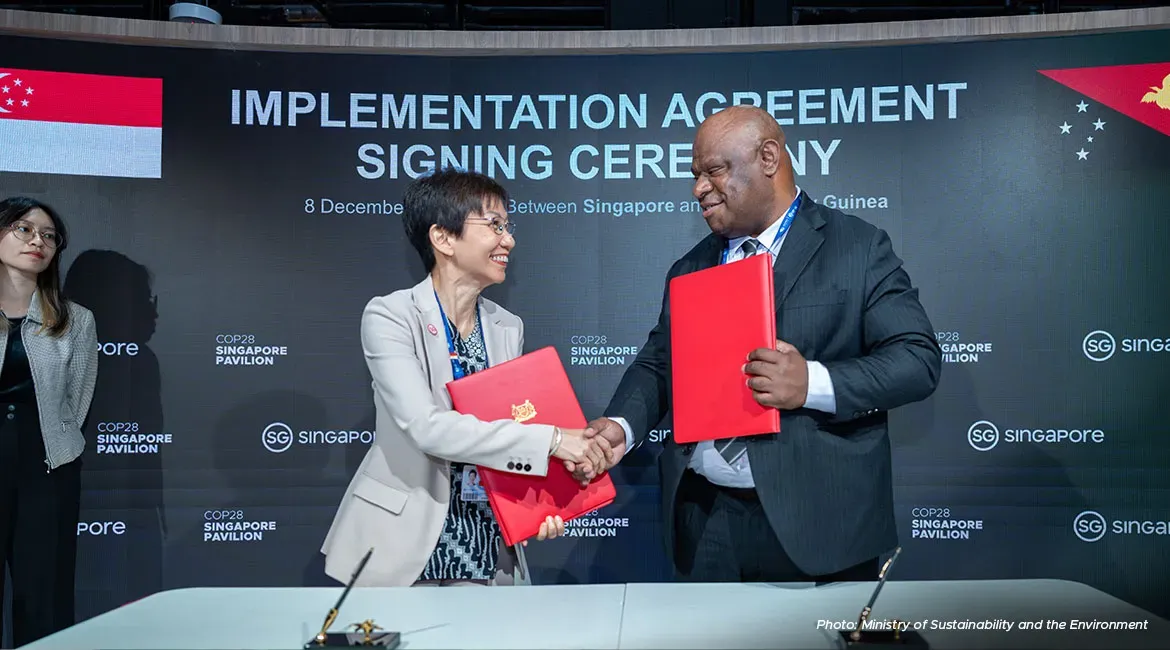The Ministry of Sustainability and the Environment (MSE) and the National Environment Agency (NEA) published their eligibility list under the International Carbon Credit (ICC) Framework. It is set to take effect on January 1, 2024.
This came after Singapore scored its first carbon credit transfer agreement with Papua New Guinea on December 8, confirming that carbon credits from the Oceanian country will make up the pool of credits Singapore’s high emitters can use to offset up to five per cent of their taxable emissions from 2024.
It is also during 2024 that the carbon tax rate will rise to S$25 per tonne of emissions, from the current S$5 per tonne.
Though the Singapore government indicated that it would unveil a list of eligible host countries by the end of the year, Papua New Guinea was the sole host country on the eligibility list of ICCs published on Tuesday (Dec 19).
NEA, as the administrator of Singapore’s carbon tax regime, intends to review and update the eligibility list annually to “maintain relevance and uphold high environmental integrity standards, based on the latest science and evidence”.
Such a review will also include the addition or delisting of carbon crediting programmes and methodologies.








